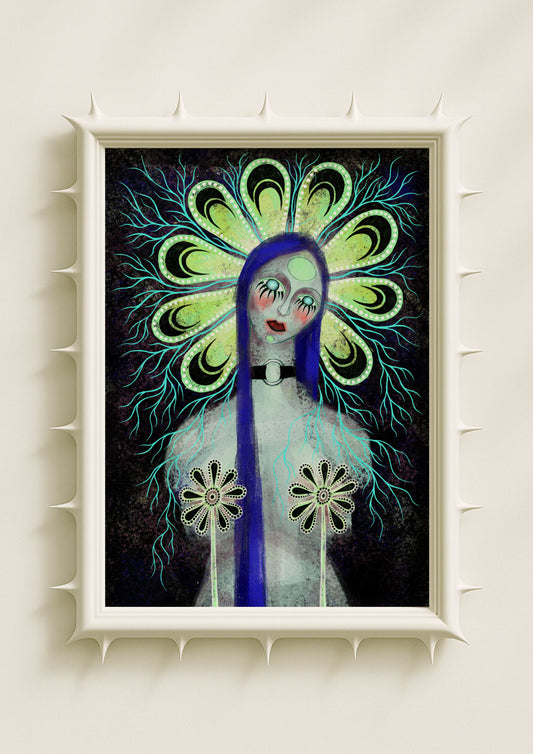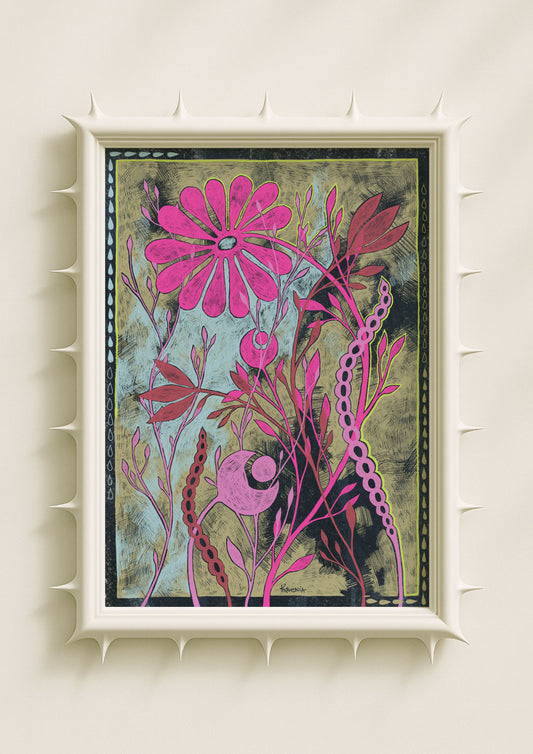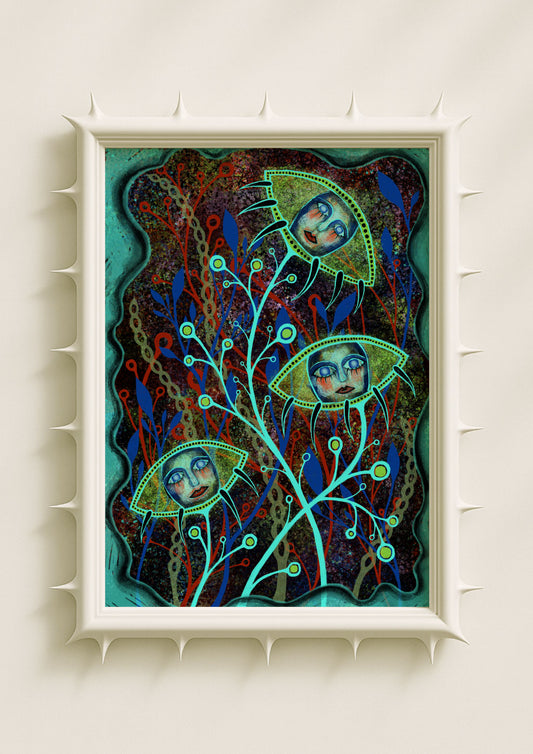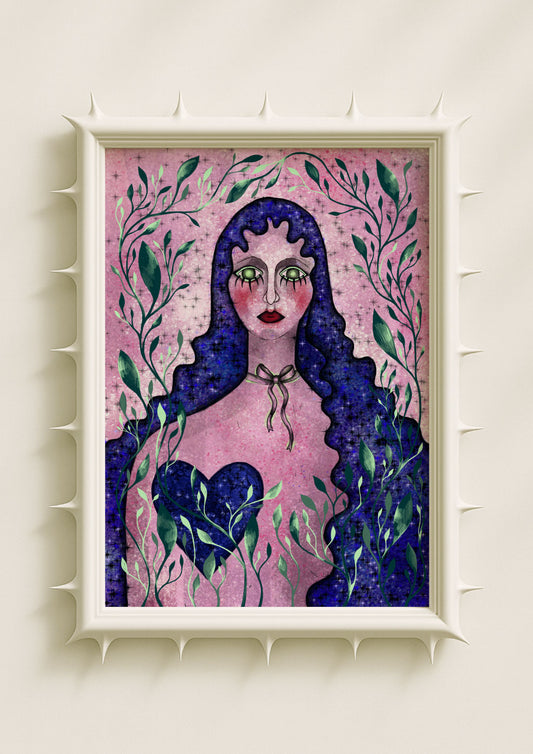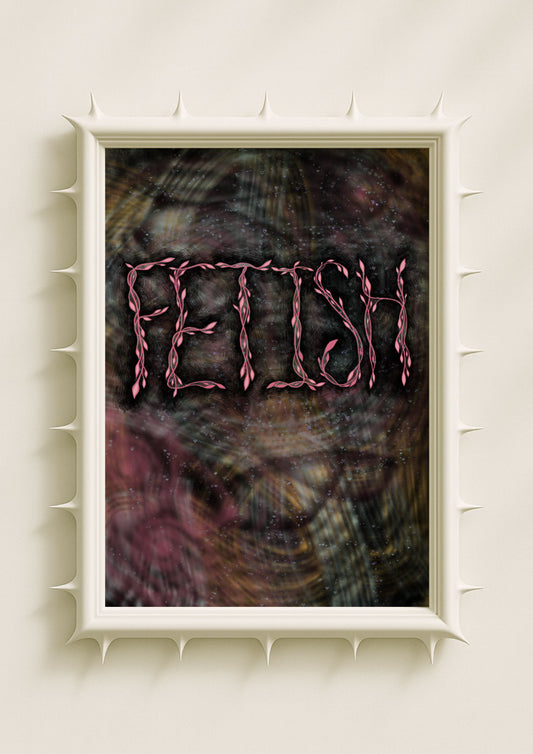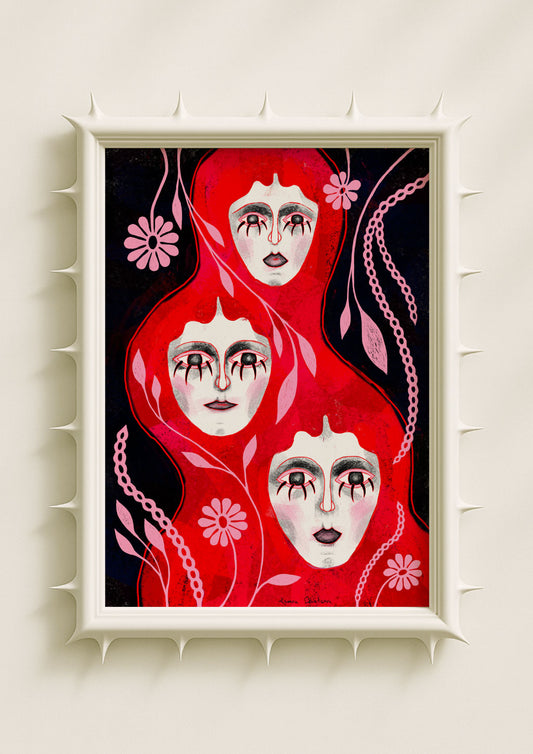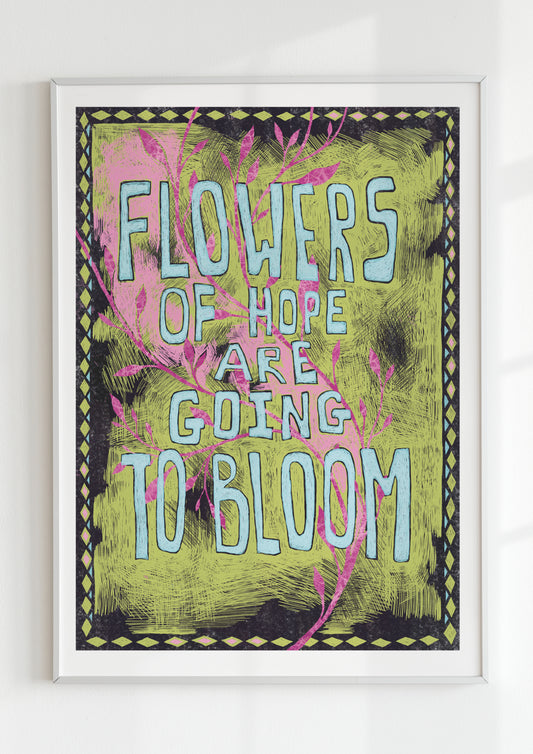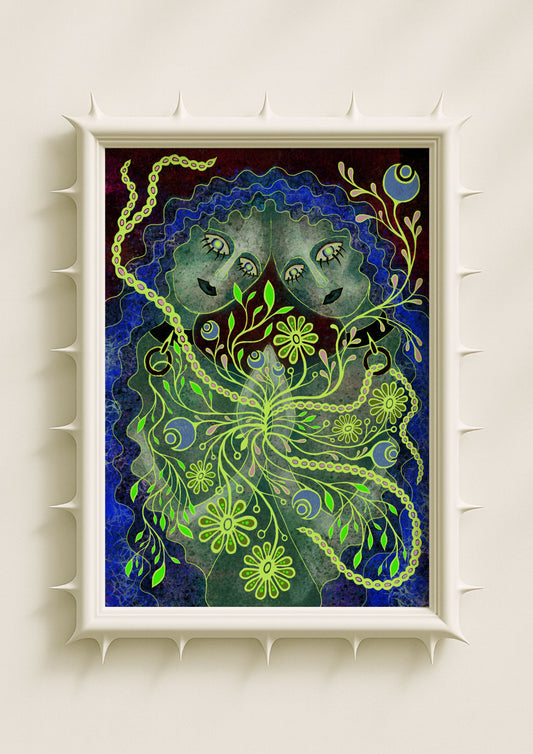Shadows That Create Atmosphere Rather Than Darkness
When dark fairytale posters enter a room, they transform the atmosphere without overwhelming it. Their shadows are rarely heavy; they move softly, like quiet layers of emotion beneath the surface. In my surreal artwork, this shadowed tone appears through soft blacks, deep blues, and botanical gradients that feel both mysterious and soothing. These dreamlike shadows bring depth to an interior, giving the space emotional resonance rather than visual weight. They allow the room to hold silence, reflection, and a sense of story.

Symbolic Imagery as Emotional Architecture
Dark fairytale posters carry symbols that act like anchors—guiding the mood of the room with subtle psychological cues. The surreal botanicals in my portraits, the mirrored petals, the glowing seeds, and the portal-like eyes become emotional architecture within the space. These symbols don’t decorate; they create emotional temperature. A glowing flower can introduce a sense of guarded hope, while an oversized gaze adds introspection. The room begins to feel layered, as if it contains its own quiet narrative.
Soft Darkness for Intimate Interiors
Soft darkness has a grounding effect in design. It gives a space privacy, warmth, and emotional containment. My dark fairytale posters use this softness to create intimacy rather than gloom. Deep greens feel like forest quiet; shadow mauves evoke twilight; muted blacks bring steadiness. When placed in a bedroom, reading nook, or hallway, these tones invite presence. They encourage the viewer to slow down, breathe, and stay with the artwork a bit longer, letting the shadows settle gently into the interior.

Dreamlike Qualities That Balance Real Space
The dreamlike elements in my portrait art—glowing cheeks, surreal symmetry, luminous botanicals—introduce a contrast to the logical structure of a room. A living space is often defined by straight lines, sharp angles, and utility. The poster softens that structure. It introduces fluidity, imagination, and emotional openness. This balance between reality and dream creates a richer interior landscape. The artwork becomes a doorway into a more symbolic world without disrupting the room’s functionality.
Colour Palettes That Deepen Mood
Dark fairytale posters rely on colour to shape emotional presence. In my work, acid greens bring friction, while luminous pinks soften the tone. Shadow blues introduce introspection, and fuchsia highlights pulse with intensity. These colours affect the room on a sensory level. They pull the space into deeper emotional territory, creating an interior that feels warm, alive, and psychologically textured. The palette becomes part of the room’s identity, shifting its energy without overpowering the environment.

Surreal Botanicals as Emotional Companions
Botanicals in dark fairytale art often act like emotional companions. They twist, glow, and respond to the atmosphere of the piece. In my posters, these surreal plants suggest growth, tension, or inner softness. Placed on a wall, they bring a symbolic natural presence—something more atmospheric than a real plant and more expressive than a decorative motif. They make the interior feel inhabited not just by objects, but by feeling and imagination.
Eyes That Create Connection and Depth
The eyes in my surreal portraits—wide, reflective, symbolic—add emotional dimension to a room. They introduce a sense of presence, as if the artwork is aware of the space and the people in it. This presence is not intrusive; it is quiet and contemplative. The gaze draws the viewer inward, deepening the emotional connection between person and space. It turns the room into a more sensitive environment, one where interior design becomes intertwined with inner life.

A Room That Holds Story
Ultimately, dark fairytale posters add depth to interiors because they introduce story—not in a literal sense, but through atmosphere. The dreamlike shadows, symbolic botanicals, soft horror details, and glowing colours create interiors that feel meaningful rather than merely arranged. My artwork brings emotional nuance into these spaces, helping them feel more intimate, more lived-in, and more connected to the world of imagination. The room becomes a place where you don’t just exist—you feel, remember, and dream.
